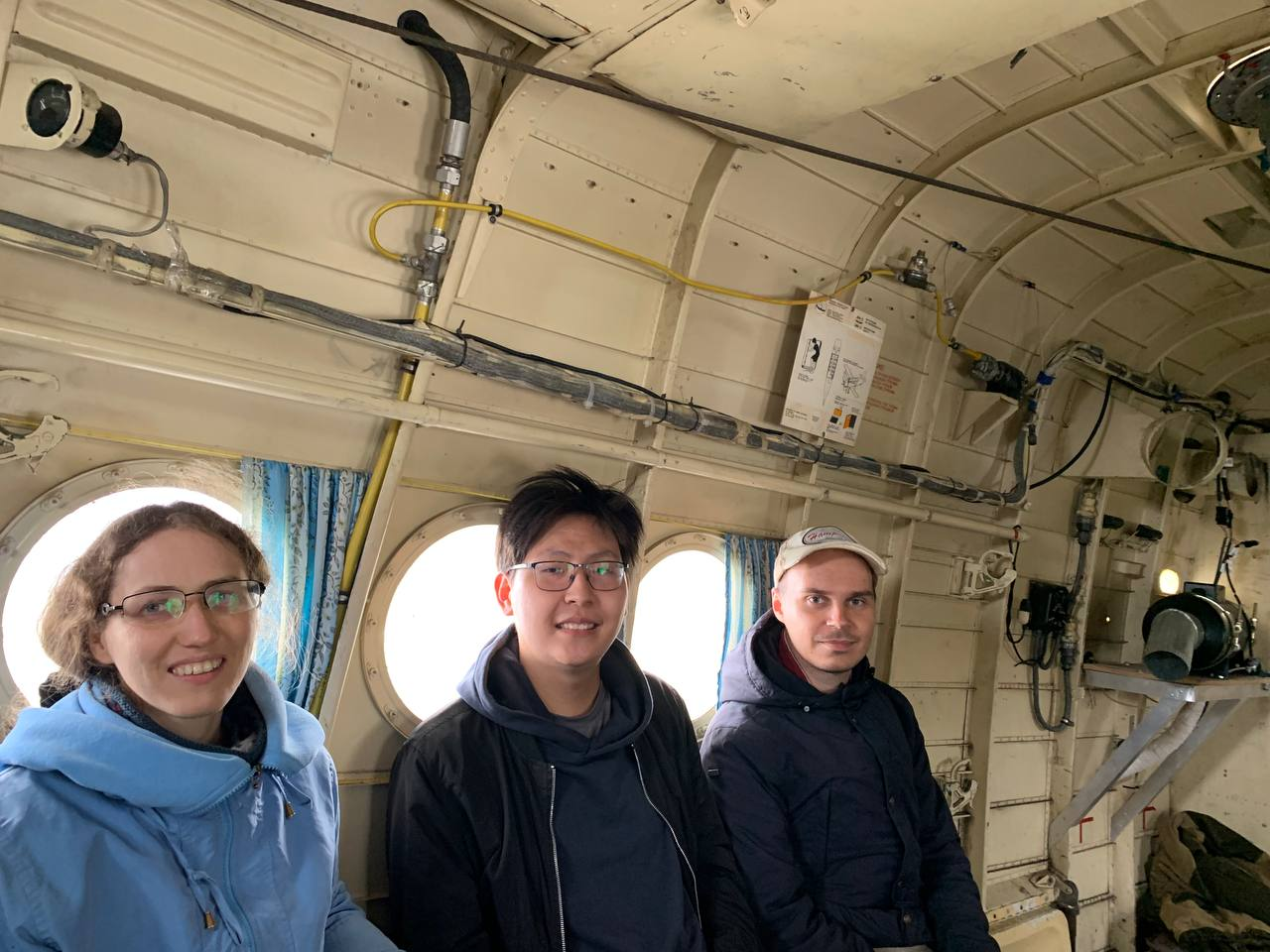
On August 21, the summer field school of the Institute of Biological Problems of the Permafrost of the Federal Research Center "Yakutsk Scientific Center of the Siberian Branch of the Russian Academy of Sciences" completed its work. School participants studied greenhouse gases and their impact on the Earth's climate. The training was conducted at the Spasskaya Pad International Forest Research Station located in Central Yakutia.
The summer field school "Greenhouse gases and climate - monitoring, manipulation, modeling and management" worked under the scientific supervision of Trofim Maksimov, Deputy General Director of the Federal Research Center "YaNC SB RAS", Chief Researcher of the IPC SB RAS, Doctor of Biological Sciences.
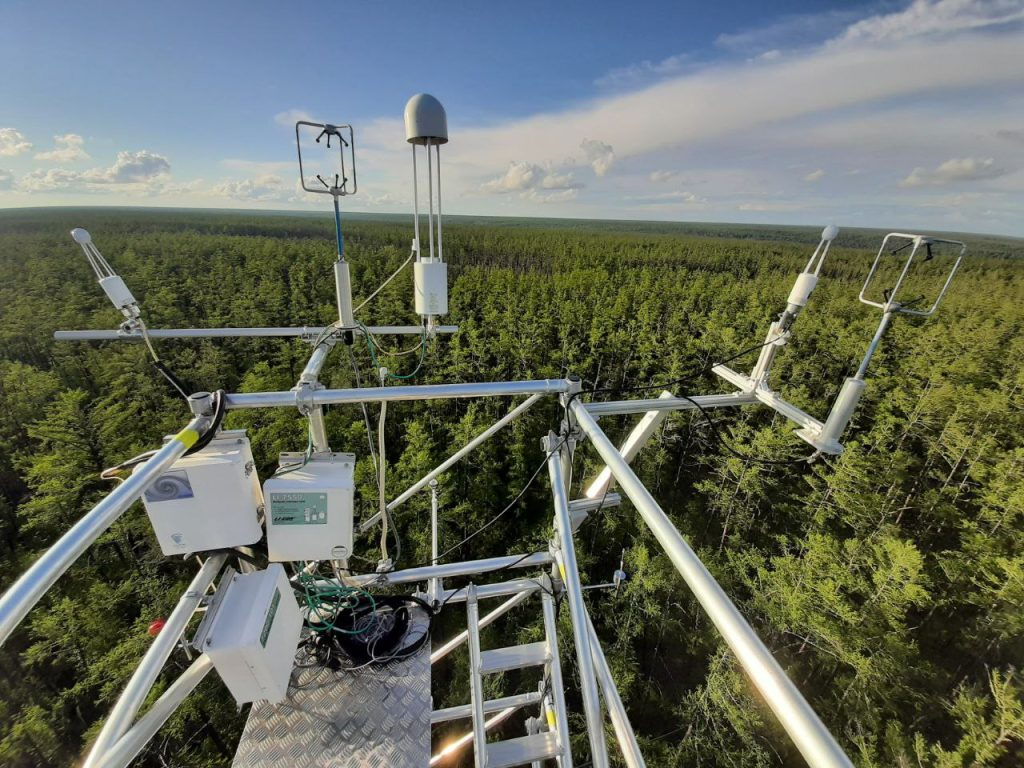
During the week, the participants of the summer field school gained new knowledge at the lectures of leading scientists from Russia, the USA, Japan and Taiwan, conducted short-term field studies at Spasskaya Pad, learned how to measure greenhouse gases and the main components of the carbon cycle, maintain scientific instruments and mathematical analysis of the received data. As part of the training, studies of greenhouse gases in the surface and boundary-planetary layers of the atmosphere were carried out - for this, the school participants flew around the territory on an An-2 aircraft. At the end of theis studies, the participants prepared reports on research carried out at the forest scientific station.
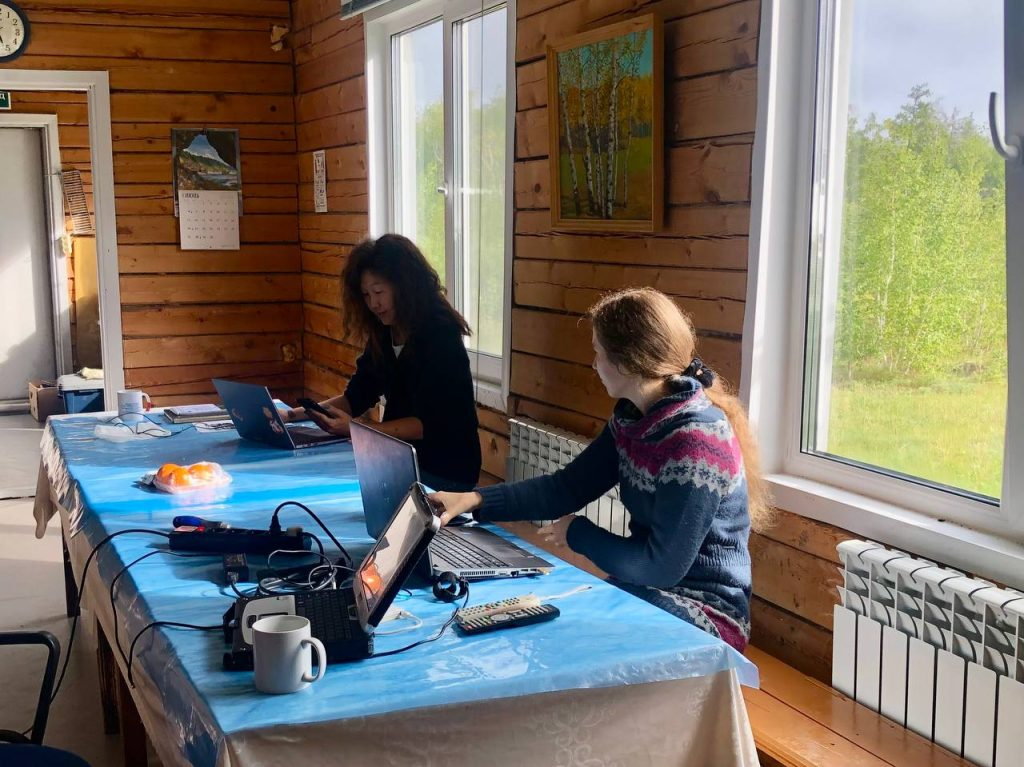
The Spasskaya Pad scientific station is equipped with the most modern equipment for studying greenhouse gases. On its territory there are three aluminum micrometeorological towers with a height of 16, 24 and 34 meters, as well as three ecophysiological 20-meter towers for access to the trees.
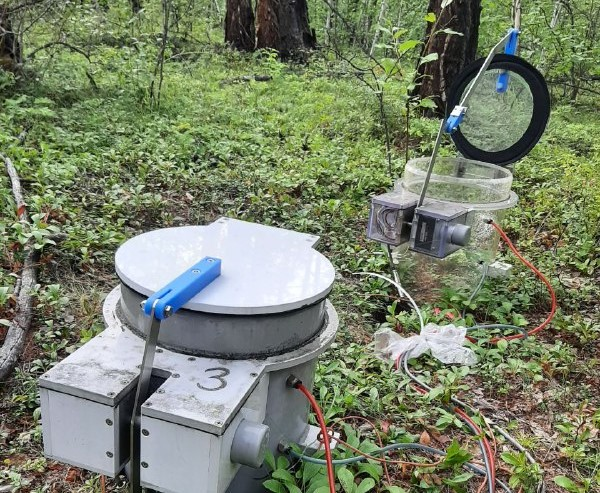
As part of the training, researchers working on the modern issue of greenhouse gas monitoring and transboundary carbon management gained a broad understanding and expanded their knowledge of the field of decarbonization. In the future, they will be able to use the acquired knowledge and skills in the practice of organizing a national system of carbon ranges and farms.
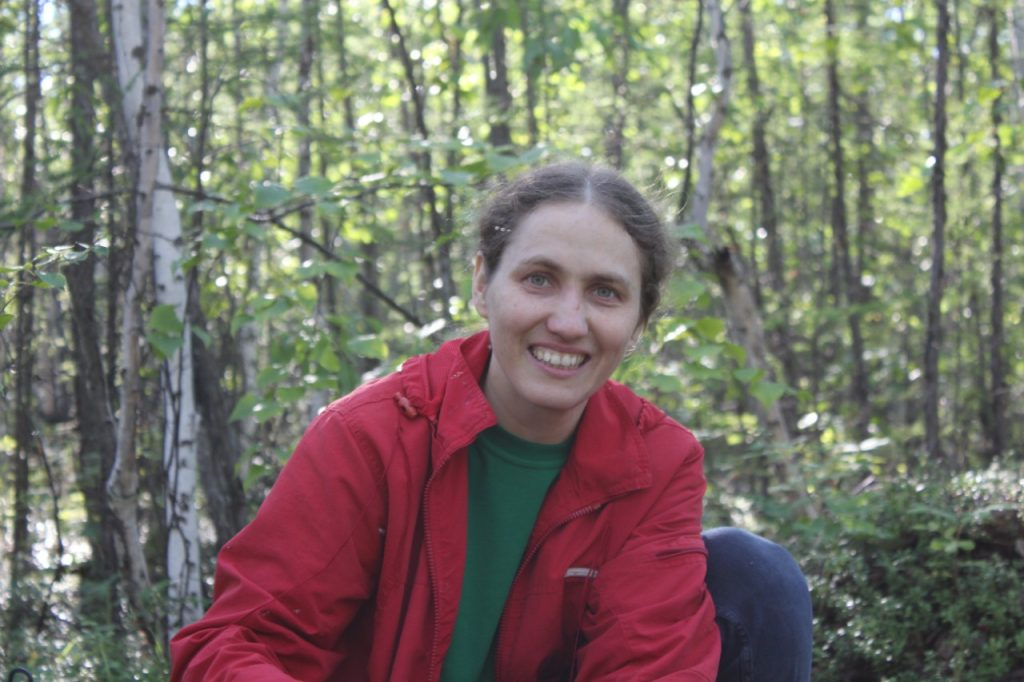
Researcher of the V.N. Sukachev Laboratory of Biogeocenology at the A.N. Severtsov Institute of Ecology and Evolution RAS (Moscow), Candidate of Biological Sciences Olga Kuricheva emphasized the hospitality of the Yakut specialists and the high level of research carried out at the Spasskaya Pad forest scientific station. “The breadth of research topics at the scientific station is remarkable, these are really complex studies from the troposphere to permafrost vertically and from the tundra to highly productive forests in the south of Yakutia horizontally. The experience of international cooperation is impressive. I really liked that in previous schools with the participation of foreign specialists, everyone at the station had to speak English - in particular, thanks to this, the team of Trofim Khristoforovich Maksimov knows English. And modern science cannot develop in one single country. Spasskaya Pad has a powerful instrument base, an extremely interesting object of study. It is important that the parameters of the investigated larch forests are close to the average values in larch forests in Russia. The studies of greenhouse gas fluxes carried out at Spasskaya Pad are among the most serious in Russia,” said Olga Kuricheva. The researcher shared that she was very impressed with permafrost: “I have been reading about permafrost since the 6th grade of school geography, and here we dug a soil pit to zero isotherm, to the border of frozen rocks. It was very cold down in this pit. For the first time in my life, I touched permafrost. We took out several ice crystals from a depth of about 1.8 meters, they were like Yakut diamonds mined by us with our own hands! For a geographer from European Russia, this is an amazing experience.” Olga Alekseevna also expressed her gratitude for the sightseeing tour over the Lena River on the An-2 aircraft, on which studies of greenhouse gas concentrations at altitude are carried out. “I was also lucky enough to film a chipmunk and see the main pest of larch forests - a live silkworm. At Spasskaya Pad, I participated in the calibration of instruments, calculations and interpretation of greenhouse gas fluxes over the forest using the turbulent pulsation method, talked about data quality control, and also learned how to measure the level of photosynthesis in natural and laboratory conditions. My scientific interests are studying the flows of greenhouse gases, energy, moisture in natural ecosystems. On Spasskaya Pad, on a tower in a larch forest, the exact same research is being carried out, so it is very interesting to exchange experience on the methods and results of research. The school strengthens the cooperation of scientific teams. I hope to continue to work together with the team of Trofim Khristoforovich, to compare ecosystems along a latitudinal transect with a scale of almost a third of the globe,” said Olga Kuricheva.
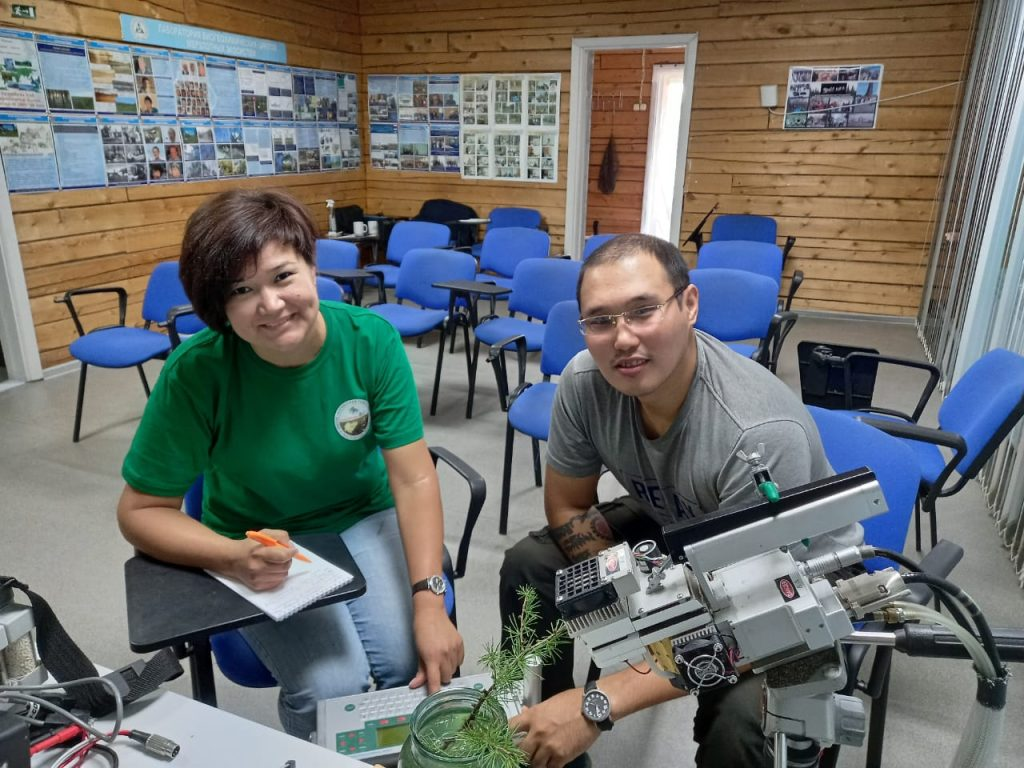
Work at the summer school was carried out in three areas - photosynthesis, soil respiration and Eddy Covariance (a modern system for continuous automatic registration of turbulent energy flows and greenhouse gases in the surface layer of the atmosphere). “I got only positive impressions from the summer school. Thank you very much to the moderators of the school for teaching and presenting material in an accessible language,” Rosa Bakhtiyarova, Associate Professor of the Ufa State Petroleum Technological University (Ufa), Candidate of Technical Sciences, shared her impressions.
“We really enjoyed the summer field school. The organizers were able to combine useful informative lectures and interesting practical exercises. It was very interesting to get acquainted in detail with the system of eddy-covariance, methods for determining soil respiration, to study the photosynthesis of various plants, and to take part in sociological surveys on global warming. We express our deep gratitude to the organizers and hope to visit the summer field school next year!” said laboratory research assistants of the Tyumen State University (Tyumen) Victoria Kolotygina and Ivan Milyaev.
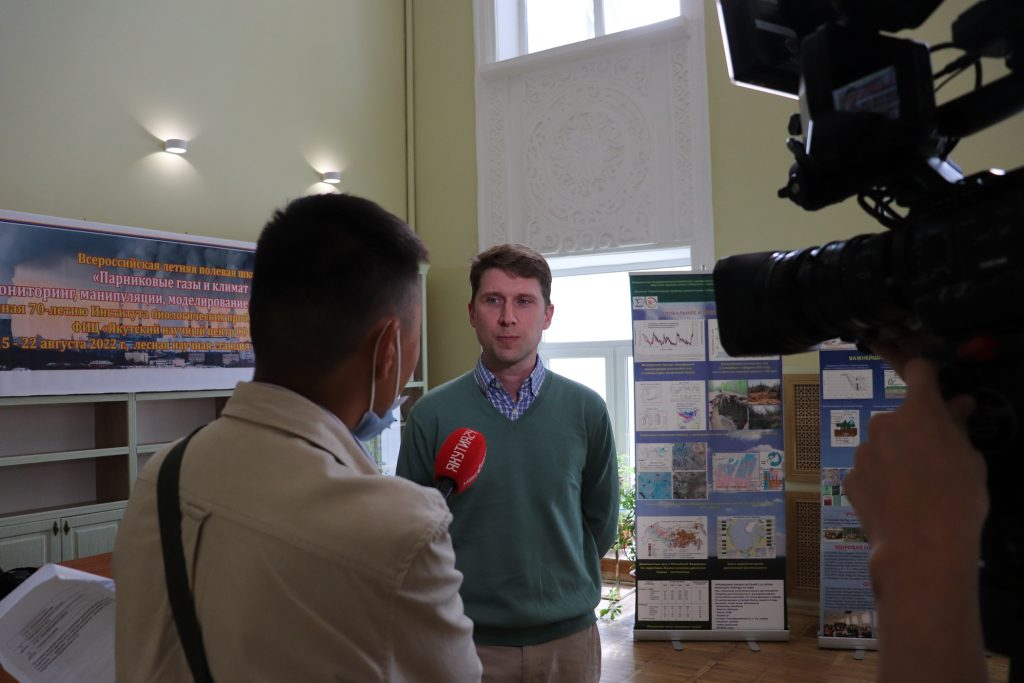
Researcher of the V.N. Sukachev Laboratory of Biogeocenology at the A.N. Severtsov Institute of Ecology and Evolution RAS (Moscow) Vitaly Avilov noted that a very wide range of research is carried out at the Spasskaya Pad station, there is a well-equipped hospital for living and research work. “Most of all, I was impressed by the view of the endless forests from the top of the tower,” the scientist said. “Our laboratory conducts almost identical research in the European part of Russia. The most promising at the moment seems to be the integration of similar stations on the territory of Russia into a single network for monitoring climate and ecosystems, that is, the creation of a scientific megastructure throughout the country,” shared Vitaly Avilov.
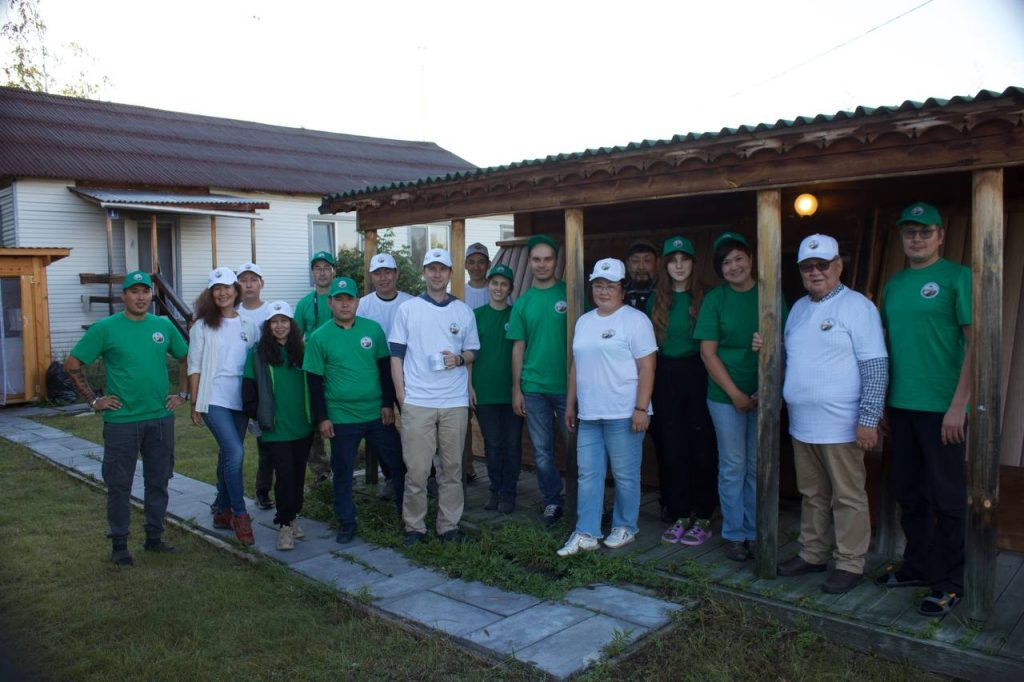
In total, 20 researchers from the A.N. Severtsov Institute of Ecology and Evolution RAS, Tyumen State University, Ufa State Petroleum Technological University, Yugorsk State University, Federal Research Center "Yakutsk Scientific Center of the Siberian Branch of the Russian Academy of Sciences", Institute of Biological Problems of the Permafrost of the Federal Research Center "YaNTs of the Siberian Branch of the Russian Academy of Sciences", Arctic State Agrotechnological University, Institute of Permafrost Science of the Siberian Branch of the Russian Academy of Sciences.
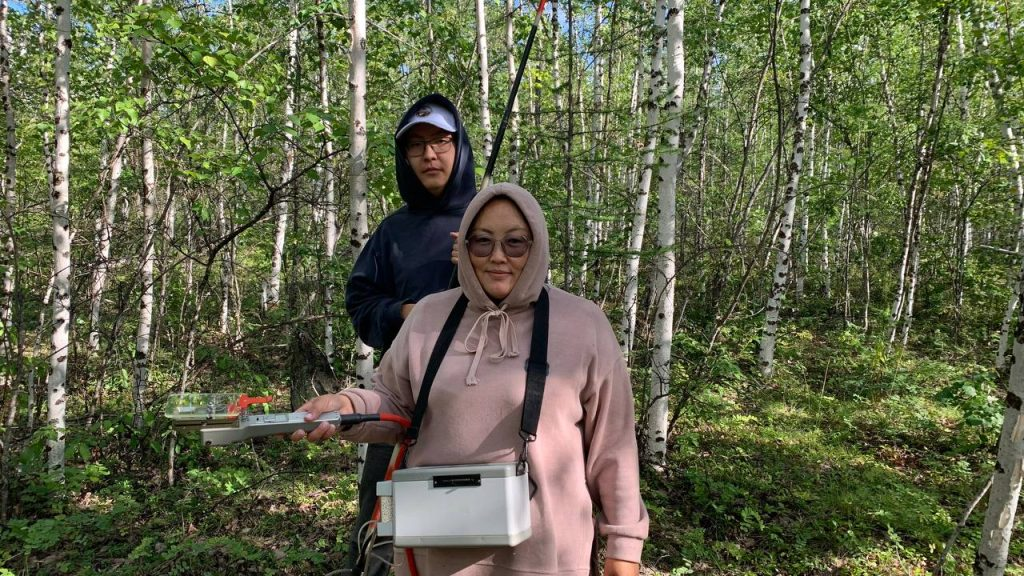
Related materials:
YakutiaMedia: "Olga Kuricheva: Research conducted in Yakutia is one of the most serious in
Russia"
SakhaMedia: "In Yakutia, scientists were trained for the national system of carbon polygons"
SakhaLife: "Scientists of Yakutia are ready for the national system of carbon polygons and
farms"
